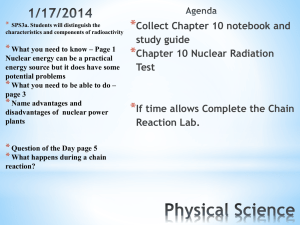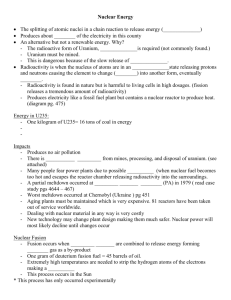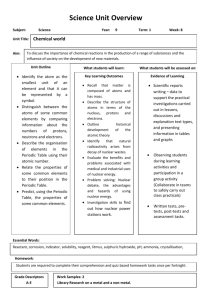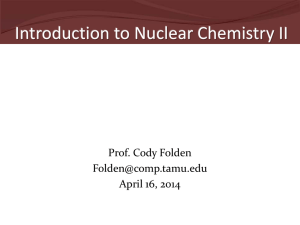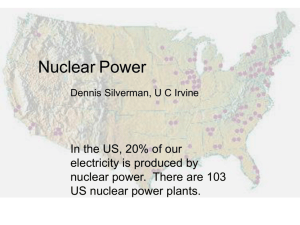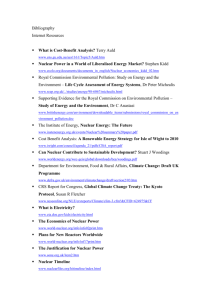JRC institutai:
advertisement
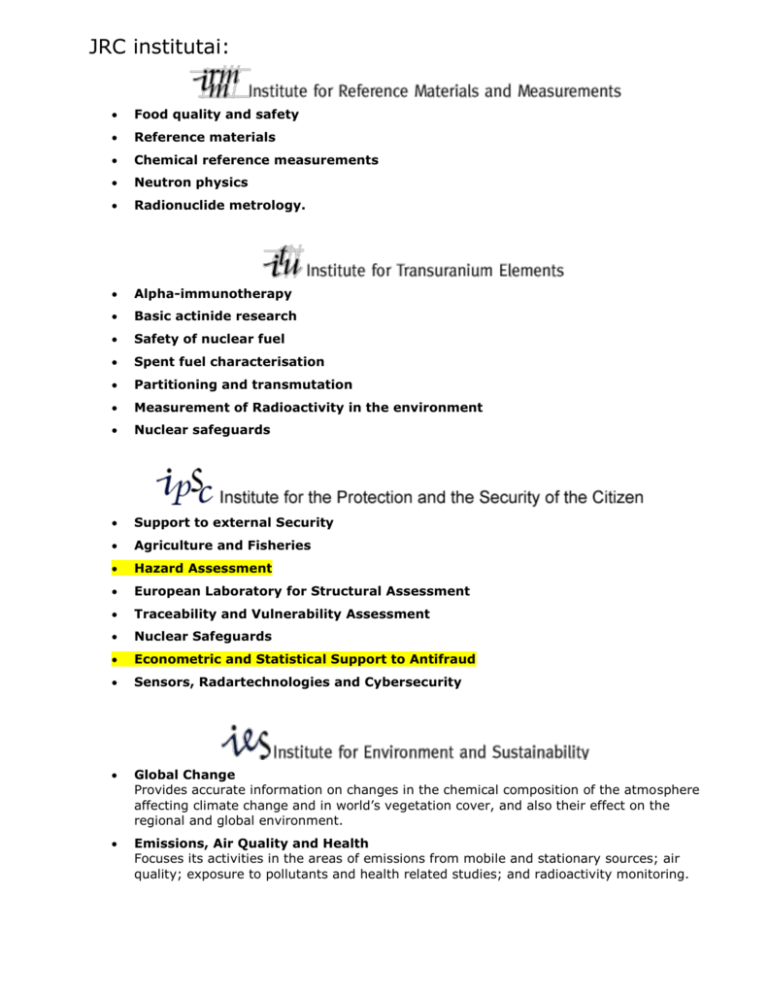
JRC institutai: Food quality and safety Reference materials Chemical reference measurements Neutron physics Radionuclide metrology. Alpha-immunotherapy Basic actinide research Safety of nuclear fuel Spent fuel characterisation Partitioning and transmutation Measurement of Radioactivity in the environment Nuclear safeguards Support to external Security Agriculture and Fisheries Hazard Assessment European Laboratory for Structural Assessment Traceability and Vulnerability Assessment Nuclear Safeguards Econometric and Statistical Support to Antifraud Sensors, Radartechnologies and Cybersecurity Global Change Provides accurate information on changes in the chemical composition of the atmosphere affecting climate change and in world’s vegetation cover, and also their effect on the regional and global environment. Emissions, Air Quality and Health Focuses its activities in the areas of emissions from mobile and stationary sources; air quality; exposure to pollutants and health related studies; and radioactivity monitoring. Terrestrial and Natural Resources Carries out research in support of EU policies regulating: spatial characterization of the European territory, land resources and bio-diversity, natural hazards, environmental impacts of waste management strategies and protection of soil resources. Water Provides scientific and technical support to the EU strategies for the protection and sustainability of inland, coastal, marine and engineered waters. Activities focus on ecological water quality; integrated river basin-coastal zone management; chemical substances in surface and drinking water, wastewater impacts; and molecular–based tools for chemical responses and pathogen/microbe detection. Renewable energies Provides a Scientific and Technological reference base on renewable energy sources and perform technology developments where harmonisation is required, particularly in the field of Photovoltaic Solar Electricity, end-use efficiency of electricity and electricity storage problems for renewables. Particular areas of activity include: food safety and quality (including food labelling and packages); alternatives to animal testing; pharmaceutical, chemical and toxicological information systems; establishment of scientific/technical competencies on nuclear medicine; understanding bio-compatible materials and devices; and tools to protect consumers' economic interests, particularly in relation to e-commerce. A multidisciplinary team of scientists and technicians The IHCP presently consists of a multidisciplinary team of scientists and technicians with expertise and experience in a wide range of fields, including: Analytical Chemistry, Biochemistry, Biology, Biometrics, Biophysics, Engineering, Food Chemistry, Information Science, Materials Science, Medicine, Molecular Biology, Pharmacology, Physics, Radiochemistry, and Toxicology. Long standing experience in scientific networking Ensuring the safety of nuclear energy Development of new nuclear energy systems Support to TACIS and PHARE nuclear activities Nuclear medicine diagnosis and therapy Underpinning research, and integrity assessment of pressure equipment, especially for energy storage and energy conversion Policy and technical support for the thermal treatment of biomass and waste-toenergy systems Analysis of the cross-sectoral impact of technologies with a view to anticipating their evolution Anticipating and evaluating market opportunities, potential breakthroughs and social challenges posed by trends and developments in technology Researching and analysing the role that science, technology and innovation play in fostering competitiveness, growth and employment in Europe
